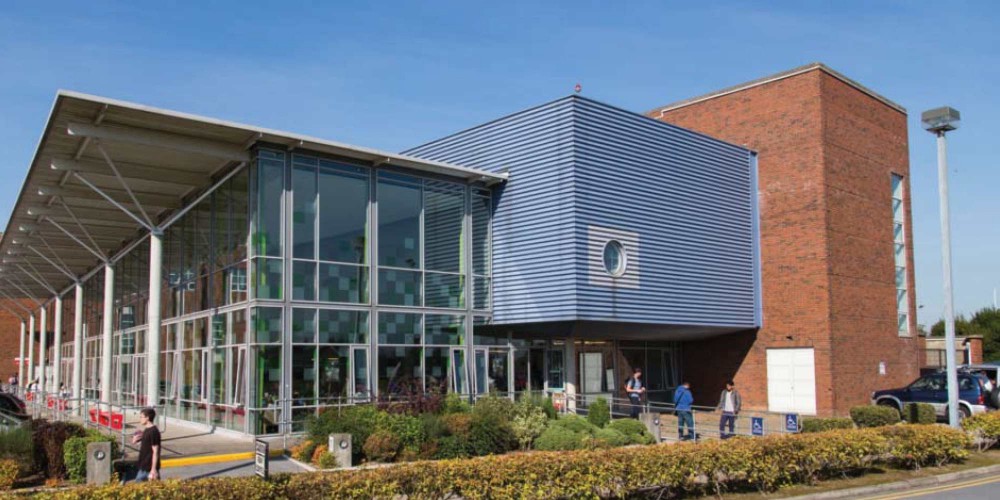
LIT Certificate in Transition to Higher Education
Who we are
Limerick Institute of Technology Access Service is committed to promoting access to higher education for under-represented groups. Directed by the office of the Vice President of Academic Affairs and Registrar, the LIT Access agenda flows from a philosophy of equality and social inclusiveness. LIT Access Service values strong partnerships and continuously collaborates with organisations who work in areas of severe social, economic and educational disadvantage in our local communities.
What we did
While participation in higher education is increasing, it is particularly evident that some communities and groups within Irish society still experience significant educational disadvantage. In an effort to provide and support equality of opportunity for all, LIT worked in collaboration with community and educational organisations to develop a holistic, supportive and engaging educational programme to advance access to higher education.
The outcome of this collaboration resulted in the development of the LIT Transition to Higher Education programme, which aims to engage some of the hardest to reach students in third –level education. The programme commenced in LIT Moylish in the 2017/2018 academic year with the purpose of providing educational opportunities for adults living in areas of severe economic disadvantage in Limerick, in particular regeneration areas.
The programme provides a pathway for adults who experience severe social, economic and/or educational disadvantage to engage in a supportive and structured third-level academic foundation programme. The programme consists of 24 weeks of lectures in core modules such as Mathematics, Computer Applications, Personal Development and Learning & Academic Skills Development. In addition to the core preparatory modules, students experience taster lectures in other subject areas.
Partnership is at the core of this initiative and has been a fundamental component of the programme’s success to date. LIT collaborates with schools and community and voluntary agencies to progress engagement in higher education for significantly under-represented student groups. We understand the significant potential that effective partnerships offer in progressing equity of access to education. The symbiotic relationships which have been fostered between LIT and our community partners have proven to be essential in empowering members of these communities to achieve their educational potential. Tiernan O Neill, Principal of Corpus Christi Primary School, Moyross stated “The Transition to Higher Education programme has provided parents in our school with a tremendous gateway to engender a sense of belonging in an education system that has for generations been an unattainable dream.”
LIT is utilising these strong partnerships to disseminate information on the Transition to Higher Education programme and to encourage and support potential participants to engage in the programme.
Impact Achieved
A number of students who have participated in the programme are from some of the hardest to reach and most disadvantaged groups. Notwithstanding these challenging circumstances, the students are progressing from the Transition to Higher Education programme into full-time major award programmes.
In addition, the students are acting as role models in their communities and inspiring others to believe in themselves and consider returning to education. After one year of the programme the impact was such that it was rolled out to two other locations in Co. Clare. A specific measure of success is the enrolment of eight members of the Irish Traveller community in degree programmes in LIT in September 2019. Previous Irish Traveller graduates from LIT promote the LIT Transitions to Higher Education within their own community. A Traveller student from LIT won a national award in Social Care in 2019, another indicator of growing confidence among this community with higher education.
What we learned
- A key learning is the importance of a relational approach to engagement, and consequently partnerships are at the centre of this programme. Partnerships within LIT, the community and with the students are fundamental to enabling success.
- One of the insights from the programme is the need to engage initially with the students within their own communities and through partners they know and trust. Potential students are then empowered with the confidence and resilience within their community setting as preparation for the challenges of transition to higher education.
- This programme is student centred at its core. Each potential student is met on an individual basis by the Programme Leader to ensure they have an opportunity to gain a thorough understanding of the academic content and the host of supports available. Each student is afforded frequent and ongoing feedforward sessions throughout the programme to assist the learning process.
- The Transition to Higher Education programme promotes a structured, supportive learning environment where students can prepare for progression to full-time study The programme recognises that students who may have exited formal education at an early juncture may require additional support, and subsequently a holistic suite of offerings are in place, such as the inclusion of additional learning support, CAO and SUSI guidance, disability support, and mentoring.
- A dedicated mentor is available to students to provide additional opportunities for timely support and encouragement, as required. As participants on the programme may have been out of formal education for a significant period of time, it is important that the learning experience is enjoyable and that critical thinking skills are fostered.
- The programme continues to advance and further its reach. We look forward to further insights and learnings throughout this future development.